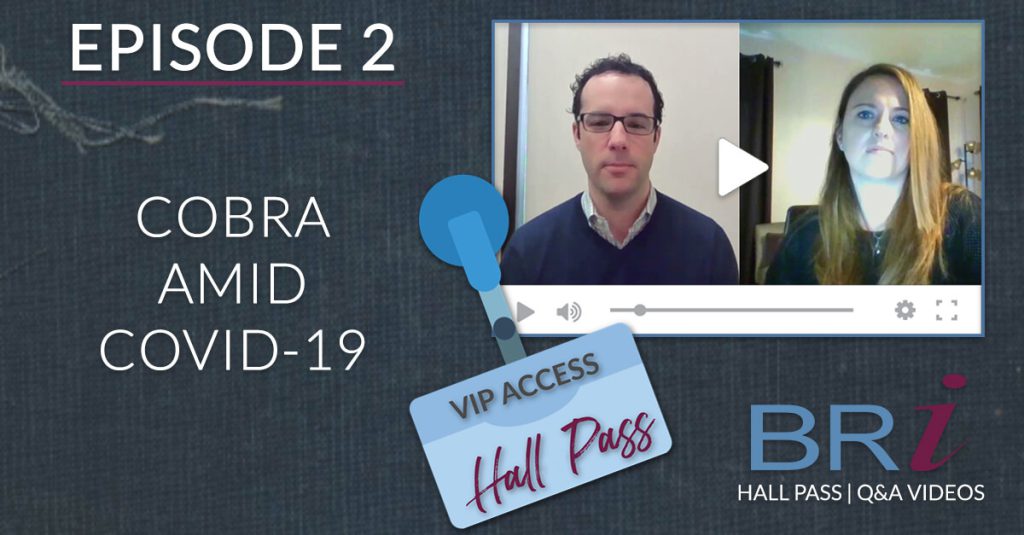The second installment of Hall Pass is a COBRA amid COVID-19 Q&A. CEO Jason Hall interviews COBRA Services & Product Supervisor Sarah Mercik. She breaks down the Consolidated Omnibus Budget Reconciliation Act (COBRA). In addition, Sarah addresses concerns individuals may have as unemployment rates rise due to the coronavirus.
Check out the video below:
COBRA amid COVID-19 Q&A
Question 1: What should individuals know about COBRA during the COVID-19 pandemic?
COBRA health insurance allows an individual who experienced a loss of coverage to continue with the same group health plan. Therefore, individuals and their families can avoid a lapse of coverage. COBRA is currently a hot topic because of two of its qualifying events:
-
- Termination of employment
- Reduction of work hours
Employees can elect COBRA coverage quite easily. Therefore, it is a great temporary option to take advantage of.
Question 2: Why would someone choose not to elect COBRA?
COBRA insurance costs represent:
- Full premium owed (employer & employee contributions)
- 2% administrative fee
As a result, COBRA can be a huge financial burden.
Question 3: Is there any legislative news regarding COBRA premium subsidies?
4/28/2020 UPDATE: A new IRS and DOL notice titled ‘EBSA Disaster Relief Notice 2020-01‘ provides temporary relief from COBRA and health plan deadlines during the COVID-19 pandemic. Get the details here.
As of now, no laws affecting COBRA have been passed at the Federal level. However, these may be included in a future COVID-19 relief bill.
Question 4: How can employers manage premium subsidies?
BRI’s COBRA platform can effectively manage premium subsidies, whether triggered by law or offered by the employer. These subsidies can be a flat dollar amount or percentage of a premium owed.
Question 5: What do employers need to know about furloughing employees?
Furloughed employees who remain on benefits can be invoiced for their portion of their premium. This is known as “direct billing“. These employees MUST be:
- Informed of their coverage
- Told what they owe
- Given payment options



